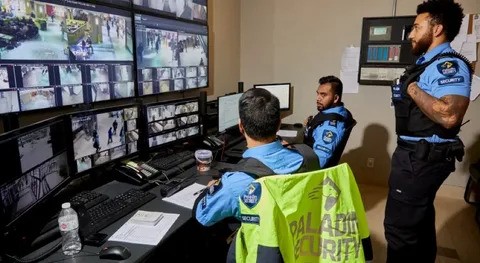Security Guard Jobs in Ireland
In recent years, the security industry in Ireland has experienced significant growth, driven by increasing concerns around public safety, crime prevention, and corporate security. Security guard jobs are a critical aspect of this sector, offering numerous employment opportunities across various industries. This article delves into the roles and responsibilities of security guards, the qualifications required, the employment outlook, and the potential career paths within Ireland’s thriving security sector.
The Role of a Security Guard
At its core, a security guard’s role is to protect property, assets, and people. This may involve safeguarding private or public premises, ensuring the security of corporate offices, or monitoring events such as concerts or sports games. The responsibilities of a security guard are varied, and they often depend on the specific role or industry they work in.
Typical duties of a security guard may include:
- Monitoring and Patrolling: Security guards regularly patrol their assigned areas to ensure everything is secure and there are no signs of suspicious activity.
- Access Control: Guards often manage entry points, ensuring that only authorized personnel or visitors are allowed access to restricted areas.
- Surveillance: Many guards are responsible for monitoring CCTV cameras to identify potential security breaches or criminal activity.
- Incident Reporting: If a security issue arises, guards are required to report the incident, take necessary actions, and sometimes assist with investigations.
- Customer Service: Security guards frequently act as the first point of contact for visitors, offering assistance and providing information when needed.
- Crisis Management: In the event of an emergency, security personnel are often tasked with responding quickly, ensuring the safety of those in their care, and coordinating with emergency services.
Given the wide array of responsibilities, security guards must be vigilant, detail-oriented, and capable of remaining calm under pressure.
Qualifications and Requirements for Security Guard Jobs in Ireland
To work as a security guard in Ireland, individuals must meet certain legal and professional requirements, primarily dictated by the Private Security Authority (PSA), which regulates the security industry across the country.
Licensing by the Private Security Authority (PSA)
A security guard in Ireland must hold a valid PSA license. This is a legal requirement, and the license is essential for anyone looking to work in the industry. The PSA offers different types of licenses depending on the role a person is applying for, including:
- Security Guard (Static): For guards working at fixed locations like retail stores, hospitals, or offices.
- Door Supervisor (Licensed Premises): For guards responsible for monitoring access to premises that serve alcohol, such as nightclubs, pubs, or events.
- Cash-in-Transit (CIT): For personnel involved in the secure transportation of money or valuable assets.
To obtain a PSA license, candidates must complete approved training courses, pass background checks, and submit an application through the PSA website.
Training and Certification
In addition to the PSA license, candidates must complete specific training programs to qualify for security guard jobs in Ireland. These courses are designed to provide individuals with the knowledge and skills required to perform security duties effectively. Training typically covers areas such as:
- Basic security procedures
- Health and safety regulations
- Conflict management and resolution
- Legal requirements and powers of security guards
- First aid and emergency response
Training programs are generally offered by licensed training providers, and once completed, individuals are eligible to apply for their PSA license.
Skills and Personal Attributes
Apart from formal qualifications, there are certain personal qualities that are vital for success in the security industry. These include:
- Attention to Detail: Security guards need to be highly observant to notice anything unusual or suspicious.
- Communication Skills: The ability to communicate effectively, both verbally and in writing, is essential for reporting incidents and interacting with people.
- Physical Fitness: While not always a requirement, many security jobs demand a certain level of physical fitness, especially for roles involving patrolling or handling confrontations.
- Problem-Solving Ability: Security guards often need to think quickly on their feet and make decisions in high-pressure situations.
- Integrity and Trustworthiness: As security personnel are tasked with protecting valuable assets and people, employers expect them to demonstrate honesty and professionalism at all times.
Types of Security Guard Jobs in Ireland
Ireland’s security industry offers diverse employment opportunities across various sectors. Some of the most common types of security guard jobs include:
1. Static Security Guard
Static security guards are employed at fixed locations such as shopping centers, government buildings, hospitals, and residential complexes. Their primary role is to monitor access, ensure premises are secure, and respond to any incidents that arise. Static security guards are often employed by private security firms contracted by businesses to protect their property.
2. Mobile Patrol Officer
Mobile patrol officers are responsible for patrolling multiple sites, ensuring that buildings, parking lots, and other properties are secure. These guards may use vehicles to travel between locations and conduct regular security checks. Mobile patrol officers often work for security companies offering services to businesses that require security presence across a wide area.
3. Event Security
Event security guards are employed to monitor and manage security at large events such as concerts, festivals, sports matches, or public gatherings. Their responsibilities may include crowd control, managing access points, and ensuring the safety of attendees. Event security is often fast-paced and requires the ability to handle high-pressure situations.
4. Retail Security Guard
Retail security guards are employed by shopping centers, supermarkets, or individual stores to prevent theft, monitor suspicious behavior, and ensure the safety of both staff and customers. These guards often work closely with store managers to develop security protocols and address any incidents of shoplifting or vandalism.
5. Door Supervisors (Bouncers)
Door supervisors, commonly referred to as bouncers, are employed at venues that serve alcohol, such as nightclubs, pubs, and bars. Their primary role is to manage access to the premises, prevent disorderly behavior, and ensure compliance with licensing laws. Door supervisors often work late hours and must be skilled in conflict resolution.
6. Corporate Security Officer
Corporate security officers work in business environments, such as office buildings, tech firms, or industrial facilities. Their duties include managing access control, monitoring surveillance systems, and ensuring the overall safety of the premises. Corporate security guards often work in high-profile environments, requiring professionalism and discretion.
7. Cash-in-Transit (CIT) Guard
Cash-in-Transit guards are responsible for the secure transportation of money and valuable assets between businesses, banks, and other financial institutions. This role requires a high level of security training and vigilance, as these guards are often targets for criminal activity.
The Employment Outlook for Security Guards in Ireland
The demand for security guards in Ireland continues to rise, driven by an increase in corporate security needs, event management, and public safety concerns. With the ongoing growth of industries such as retail, hospitality, and corporate services, security personnel are in high demand.
Salary Expectations
The average salary for a security guard in Ireland varies depending on the role, experience, and location. According to recent data, security guards can expect to earn between €11 and €15 per hour, with experienced personnel in specialized roles (such as CIT guards or door supervisors) earning higher wages. Overtime, shift differentials, and additional benefits such as health insurance and pension plans may also be available depending on the employer.
Career Progression
Security guard jobs offer numerous opportunities for career advancement. Many individuals start as entry-level guards and work their way up to supervisory or managerial positions. For those interested in furthering their careers, there are options to specialize in areas such as security consulting, risk assessment, or even private investigation.
Challenges in the Industry
While security guard jobs can be rewarding, they also come with certain challenges. These may include long hours, shift work (including nights and weekends), and the potential for confrontations or dangerous situations. However, for individuals who thrive in a dynamic environment and enjoy protecting others, these challenges can be outweighed by the sense of responsibility and achievement the job provides.
Security Guard Jobs in Ireland
Security guard jobs in Ireland present an excellent opportunity for individuals seeking stable employment in a growing industry. With the necessary training and PSA licensing, job seekers can access a wide variety of roles in sectors ranging from retail to corporate security, event management, and beyond. For those with the right skills and dedication, a career in security can offer both personal and professional rewards, along with opportunities for career progression and specialization. As the demand for security services continues to grow, the outlook for security guard jobs in Ireland remains bright.



